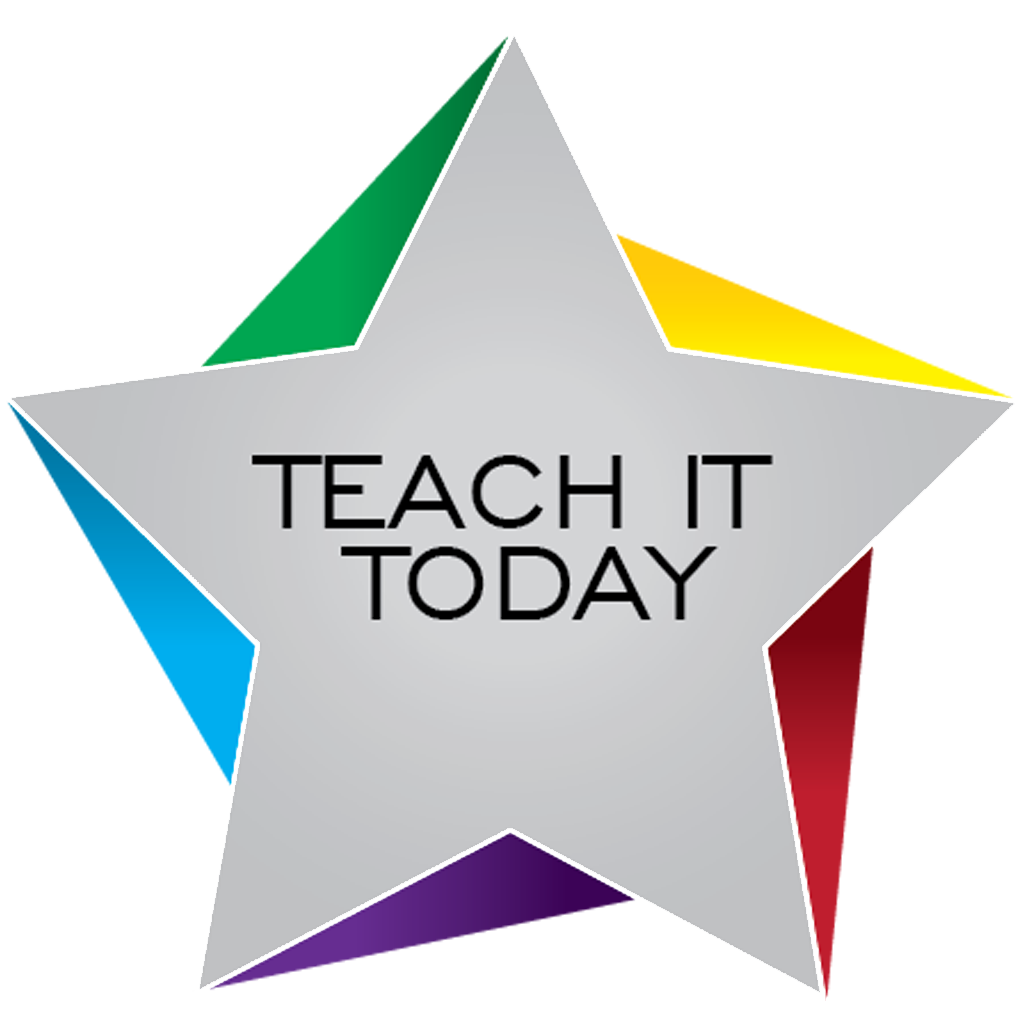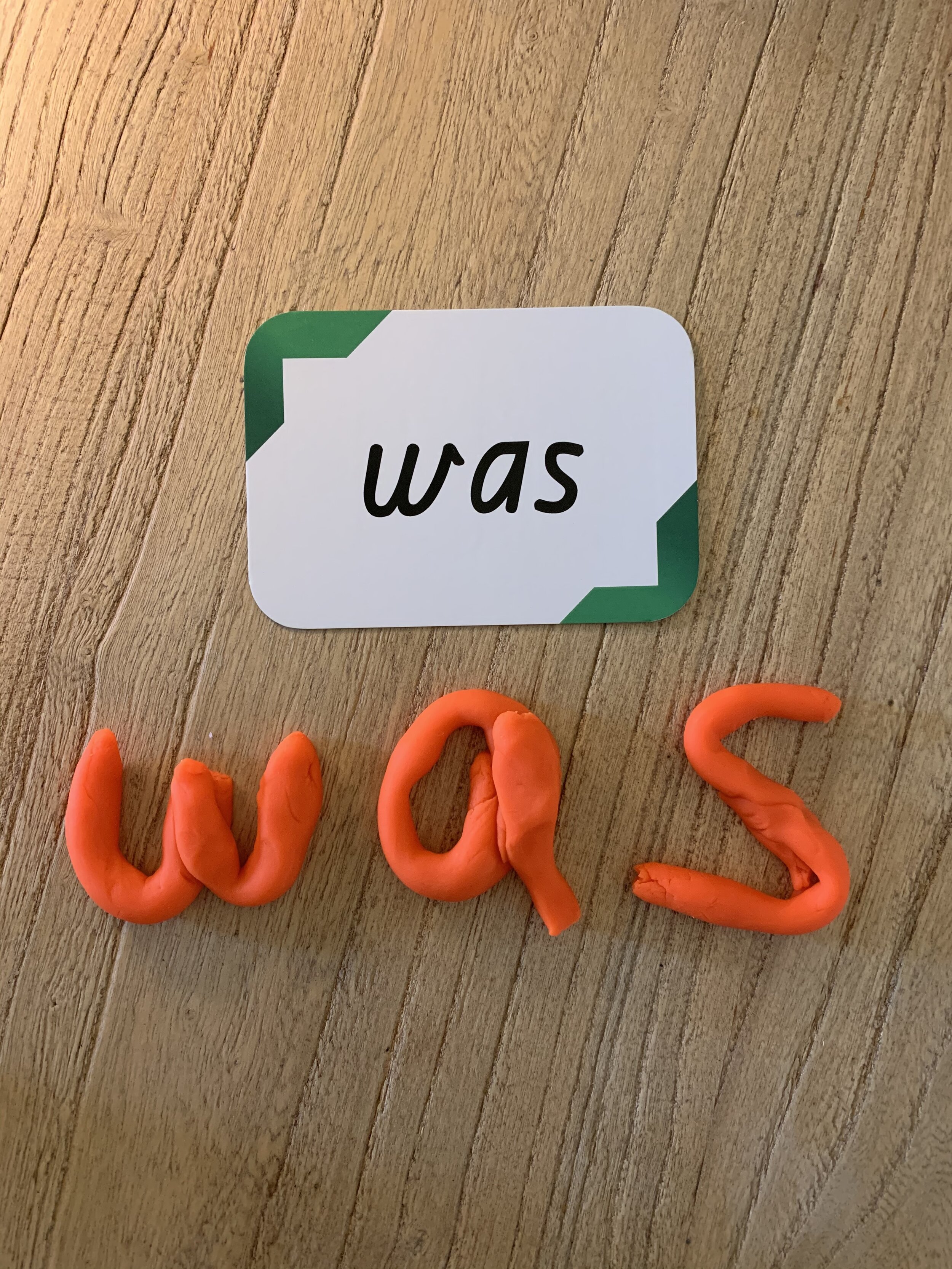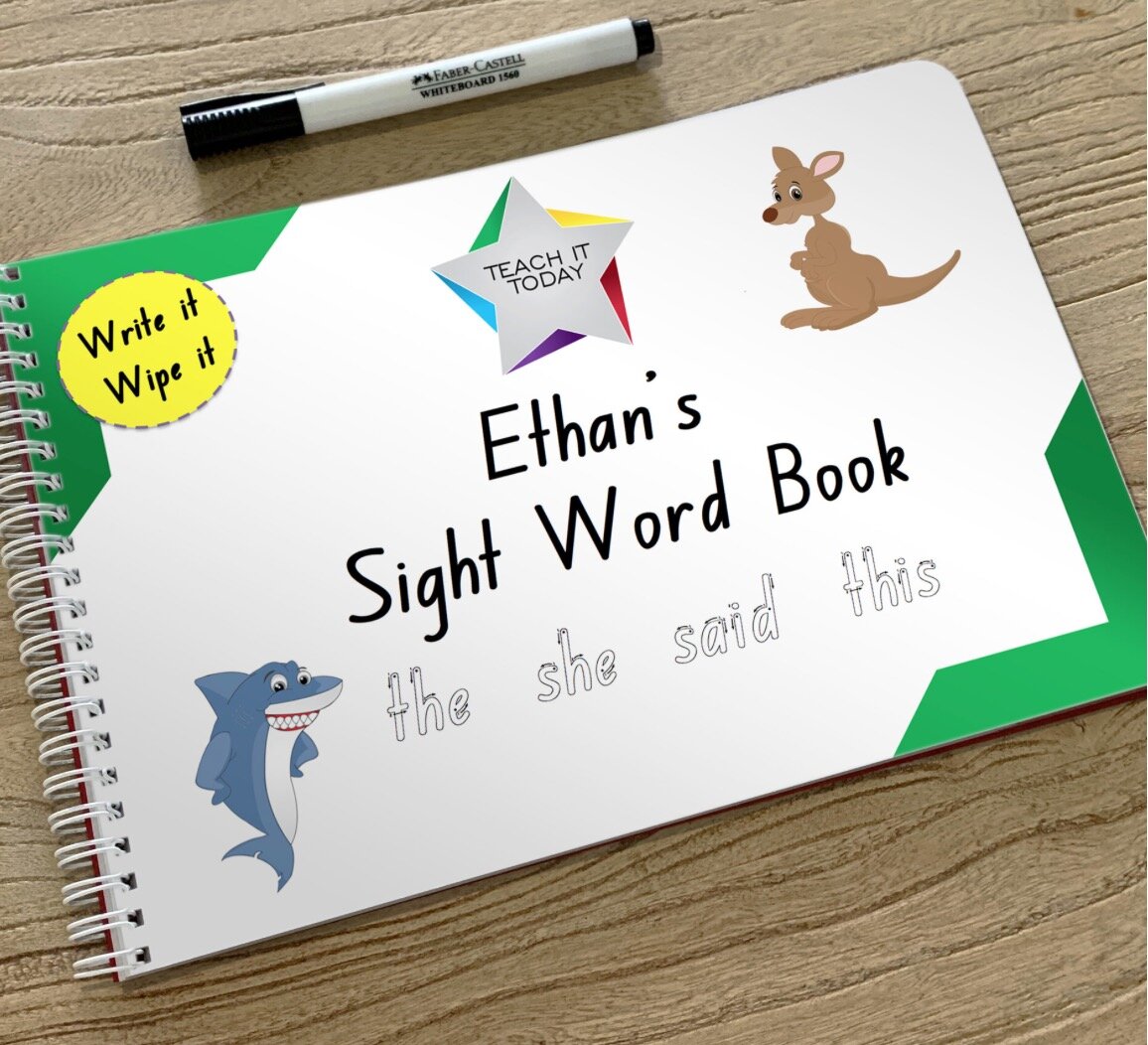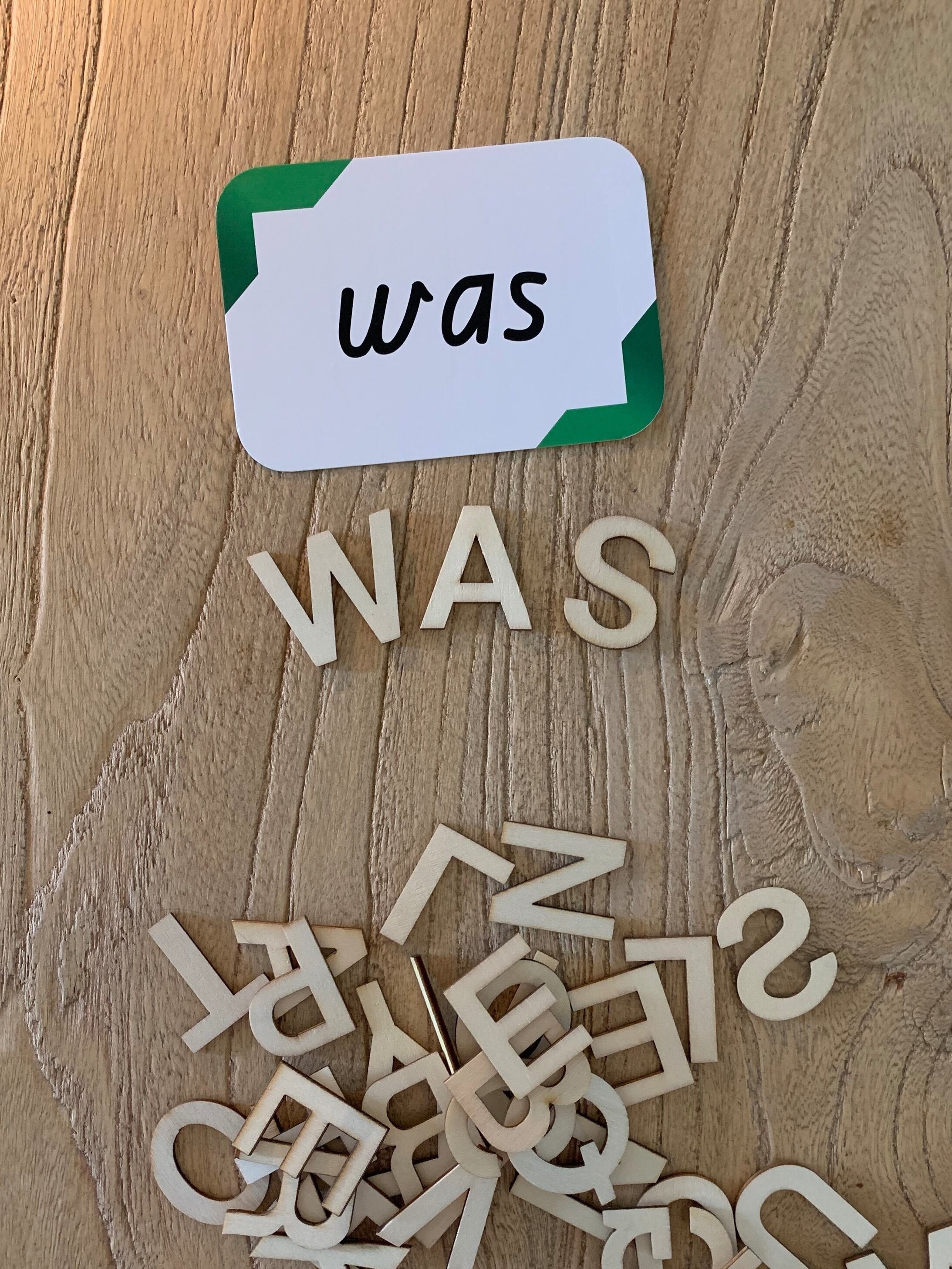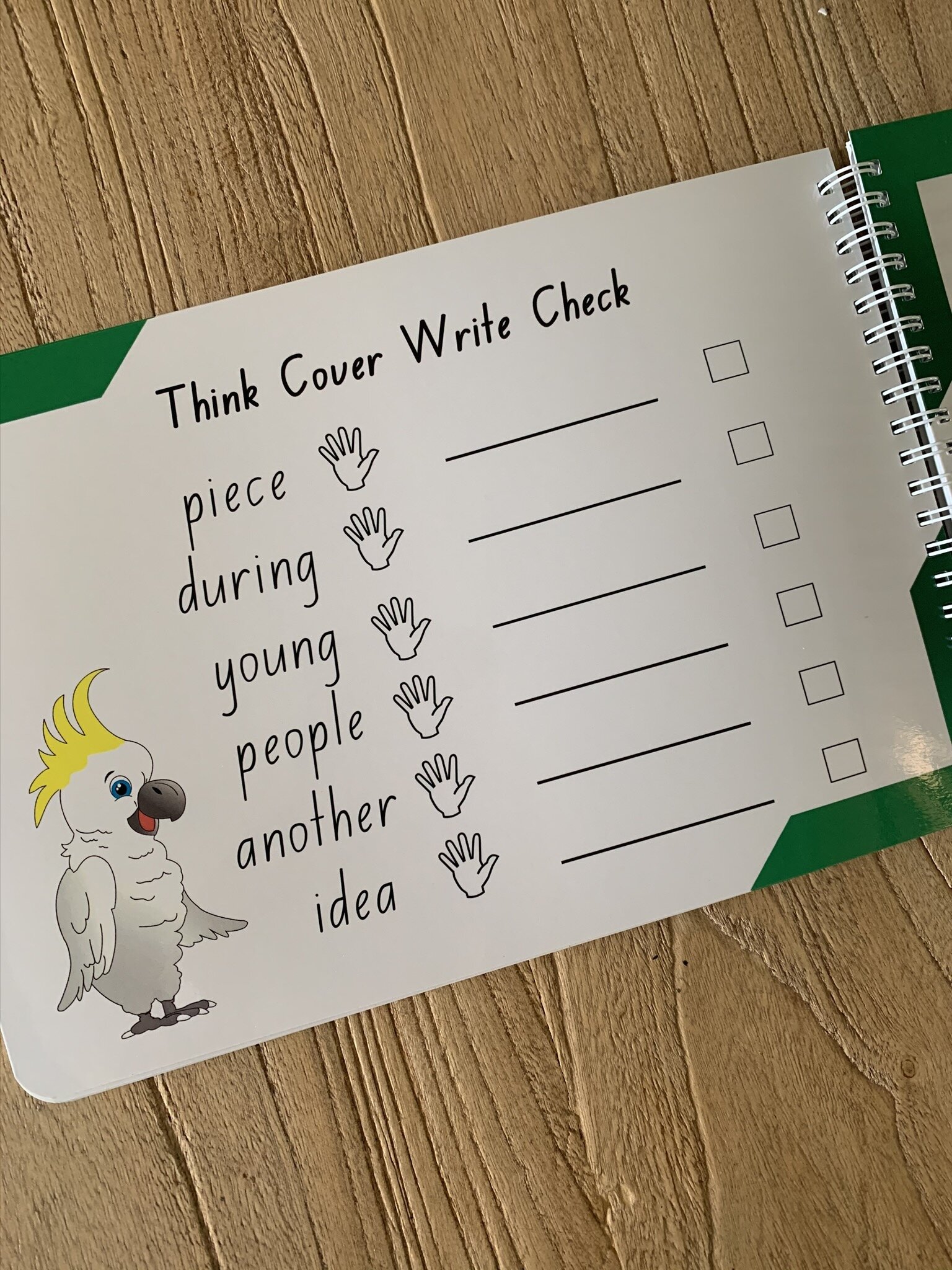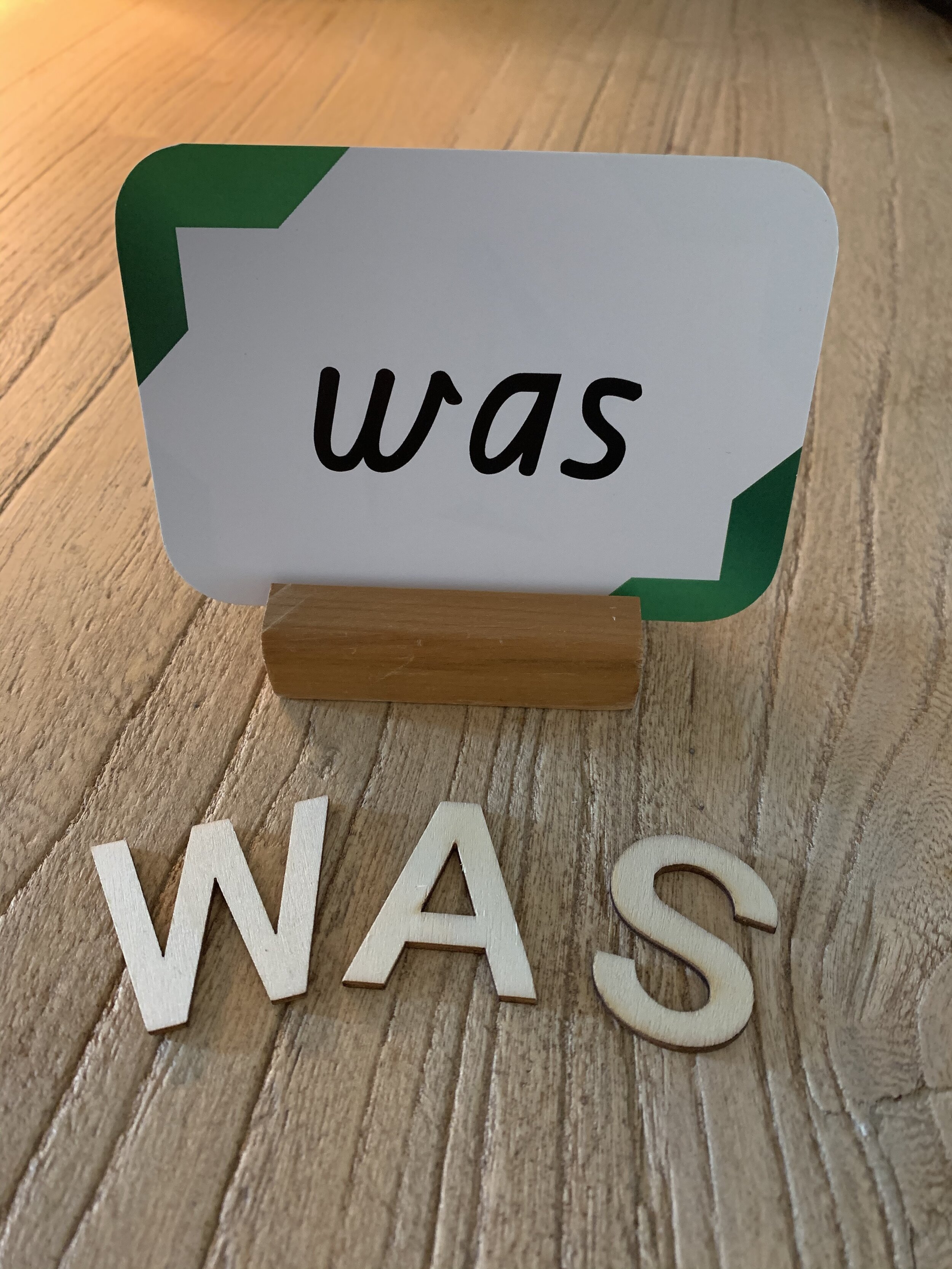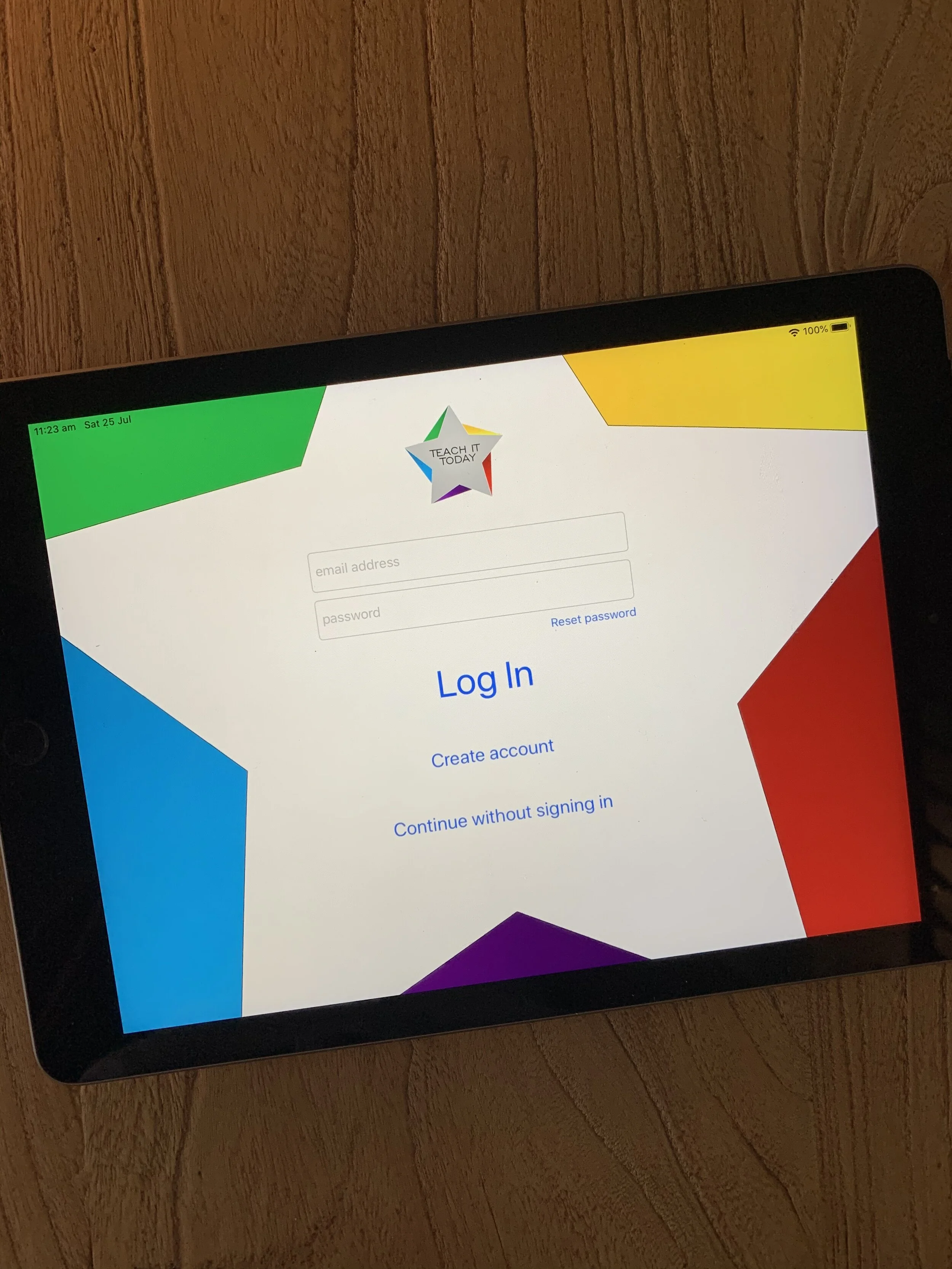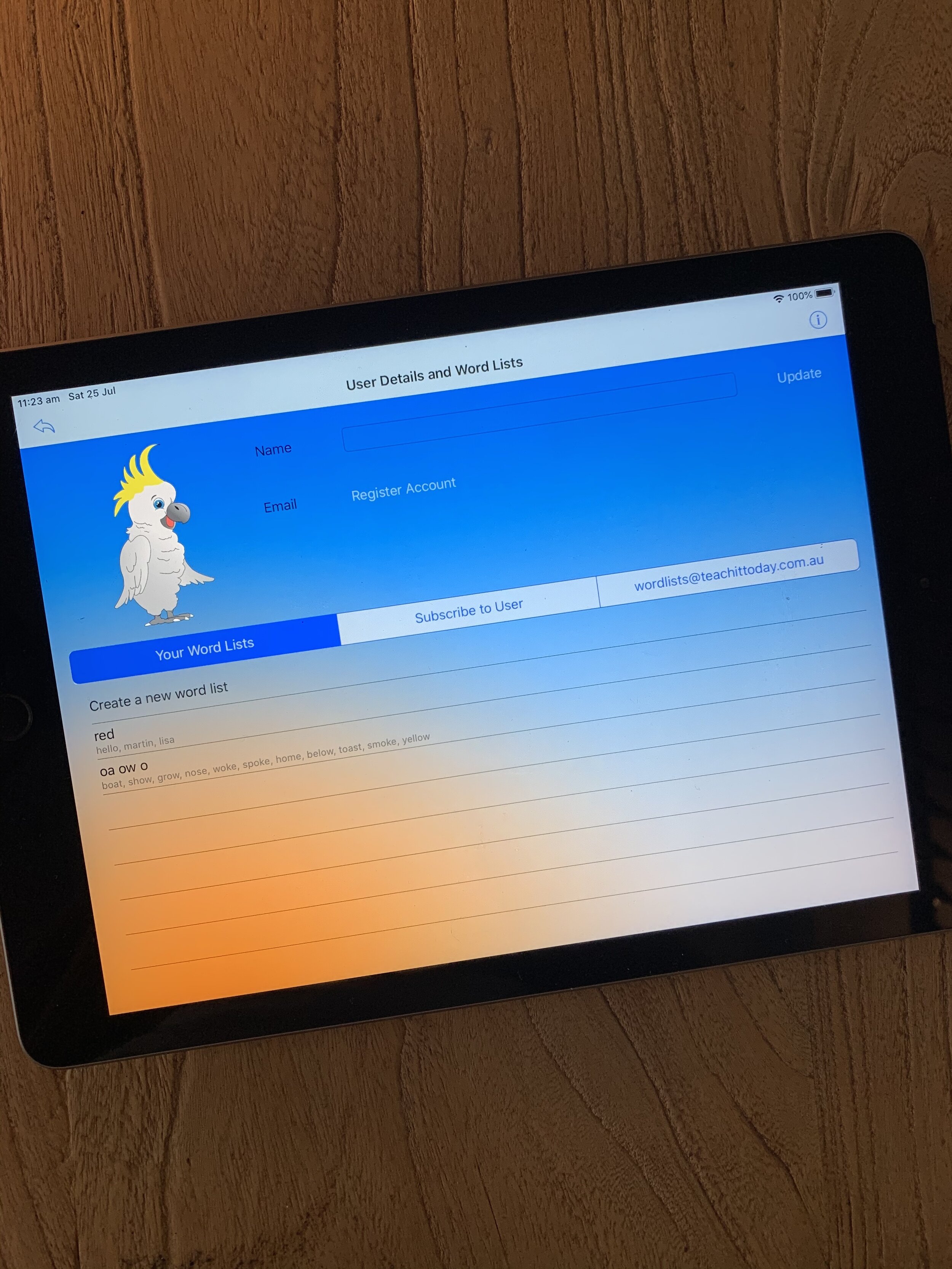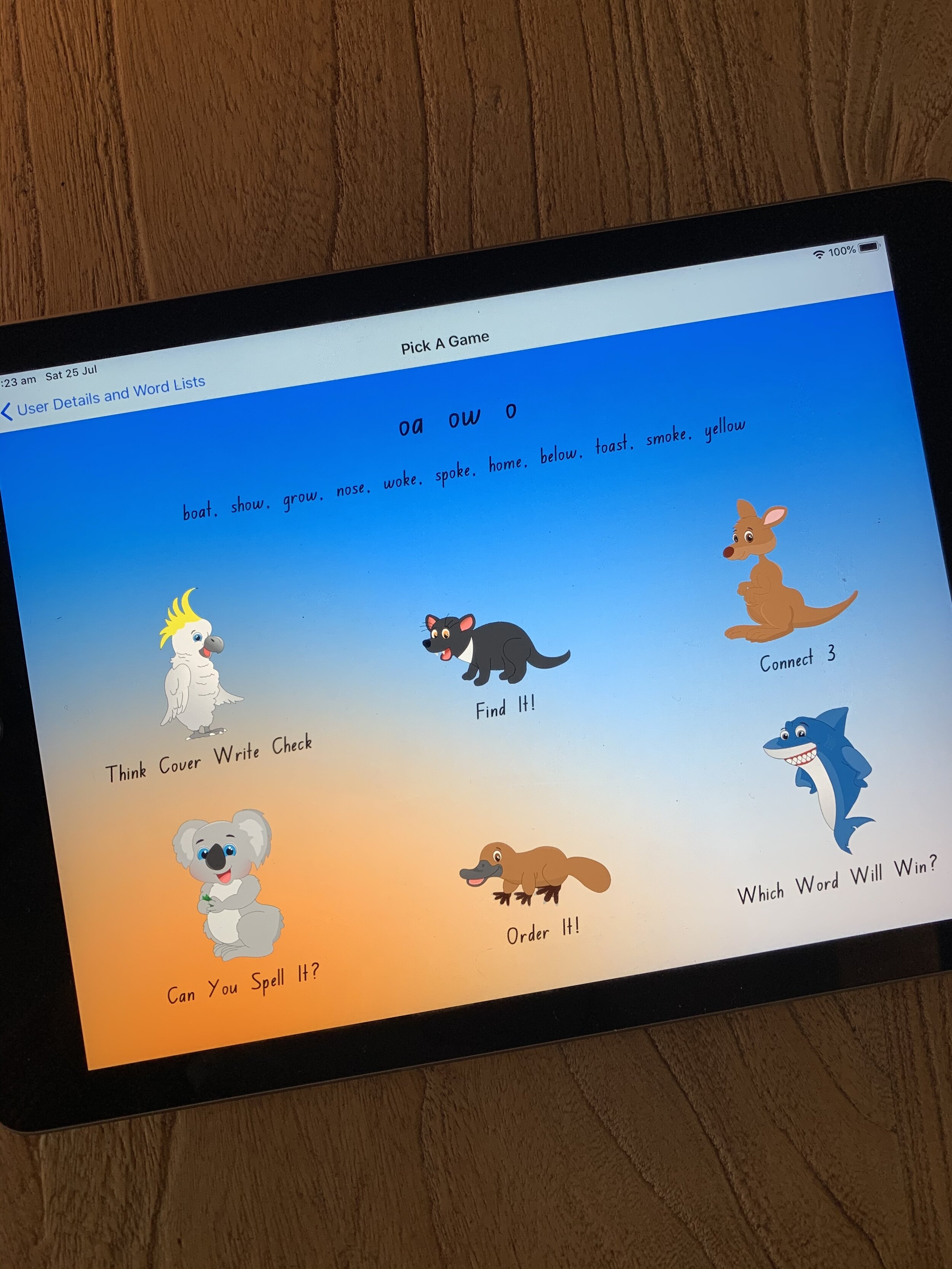Let’s talk about sight words and why they’re so important…
When your child starts Kindergarten/Foundation/Prep they will be introduced to sight words.
Sight words or high frequency words are words that occur frequently in our reading and writing but are words that can’t always be sounded out or decoded easily… they must be learned by sight! Repeated exposure is the key to learning sight words.
To learn sight words children need to be reading them, thinking about them and spelling them over and over.
There are many sight word lists and many schools use different lists to teach. You may have heard of the Magic words also known as M100W words, Dolche words, Fry sight word list…some schools may even pick and choose their own words to teach. Sight words are explicitly introduced and taught, then usually revised and explored through literacy rotations or reading groups. Many teachers will send sight words lists or flash cards home for extra practice.
It’s important that your child learns to read sight words quickly and fluently. This will not only increase their confidence when reading, but also helps in developing their understand of a text (comprehension) as they will spend less time trying to figure out what the word says and more time on what the sentence/text is about.
How do we learn sight words?
The best way to learn sight words is by making the learning experience fun! That’s why we have created some great games for sight words.
There are many games you may wish to incorporate into your sight word activities to ensure your little learner is engaged and enjoying the process of learning.
Sight words games for you to play at school or home…
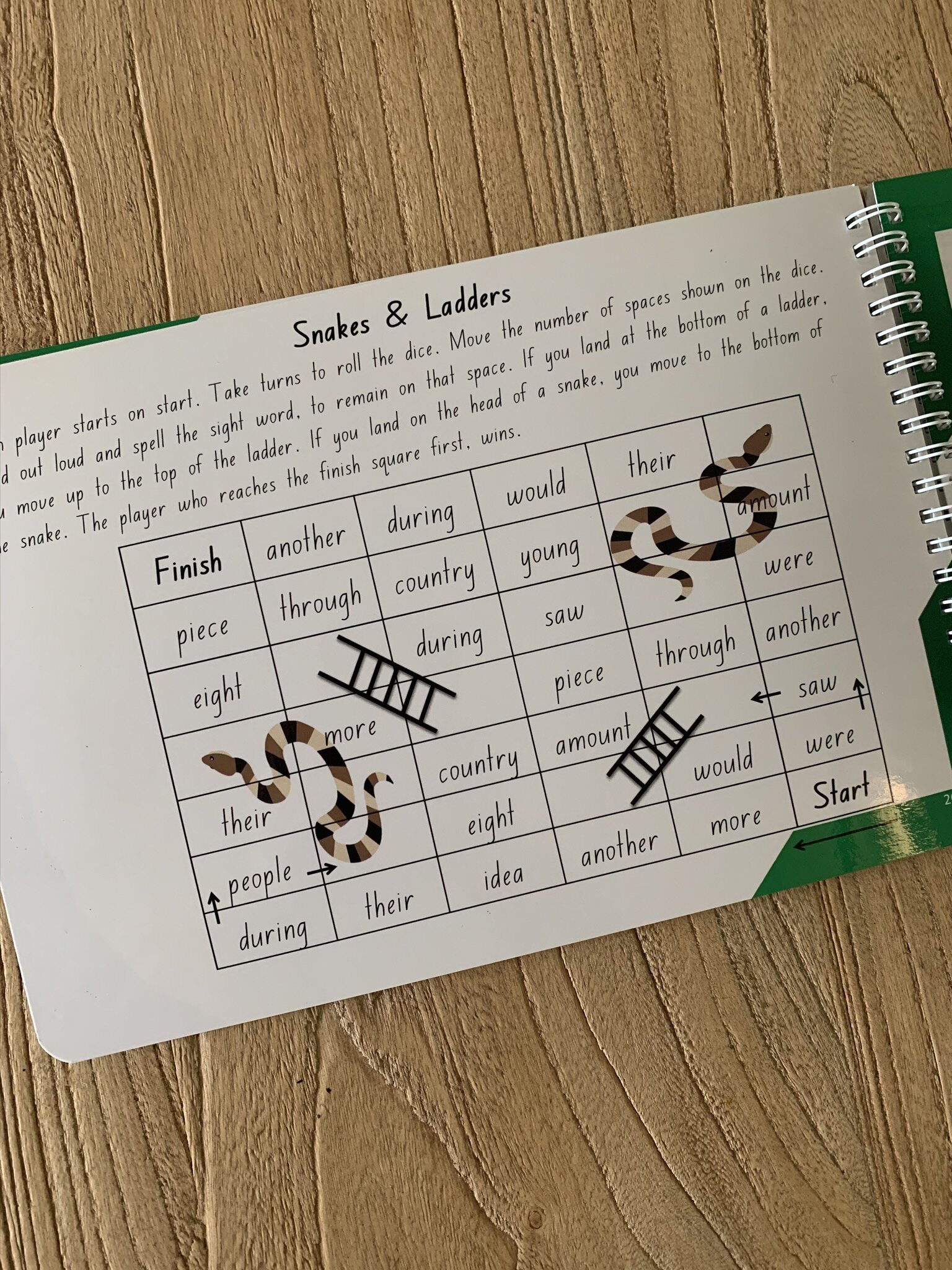
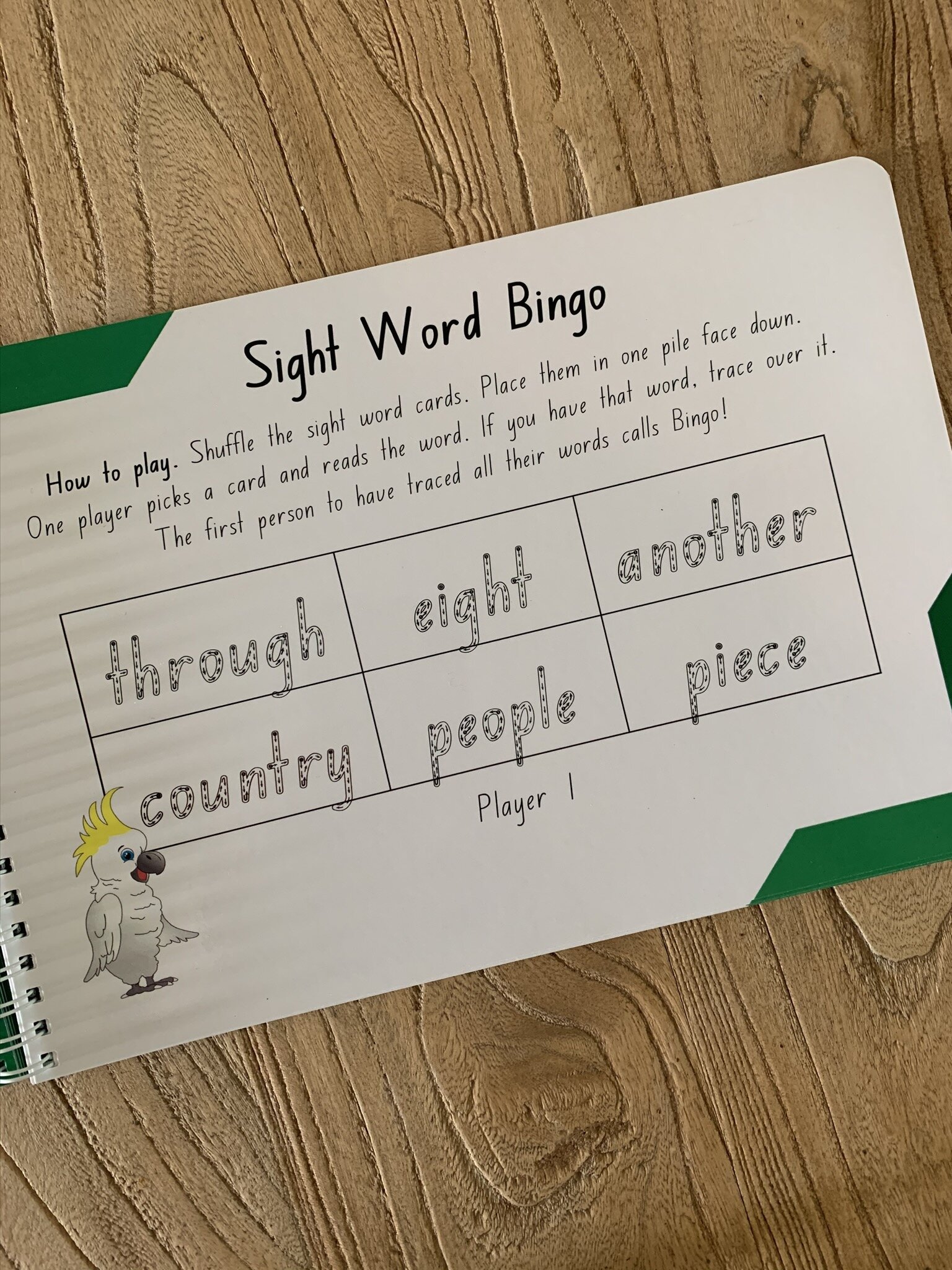
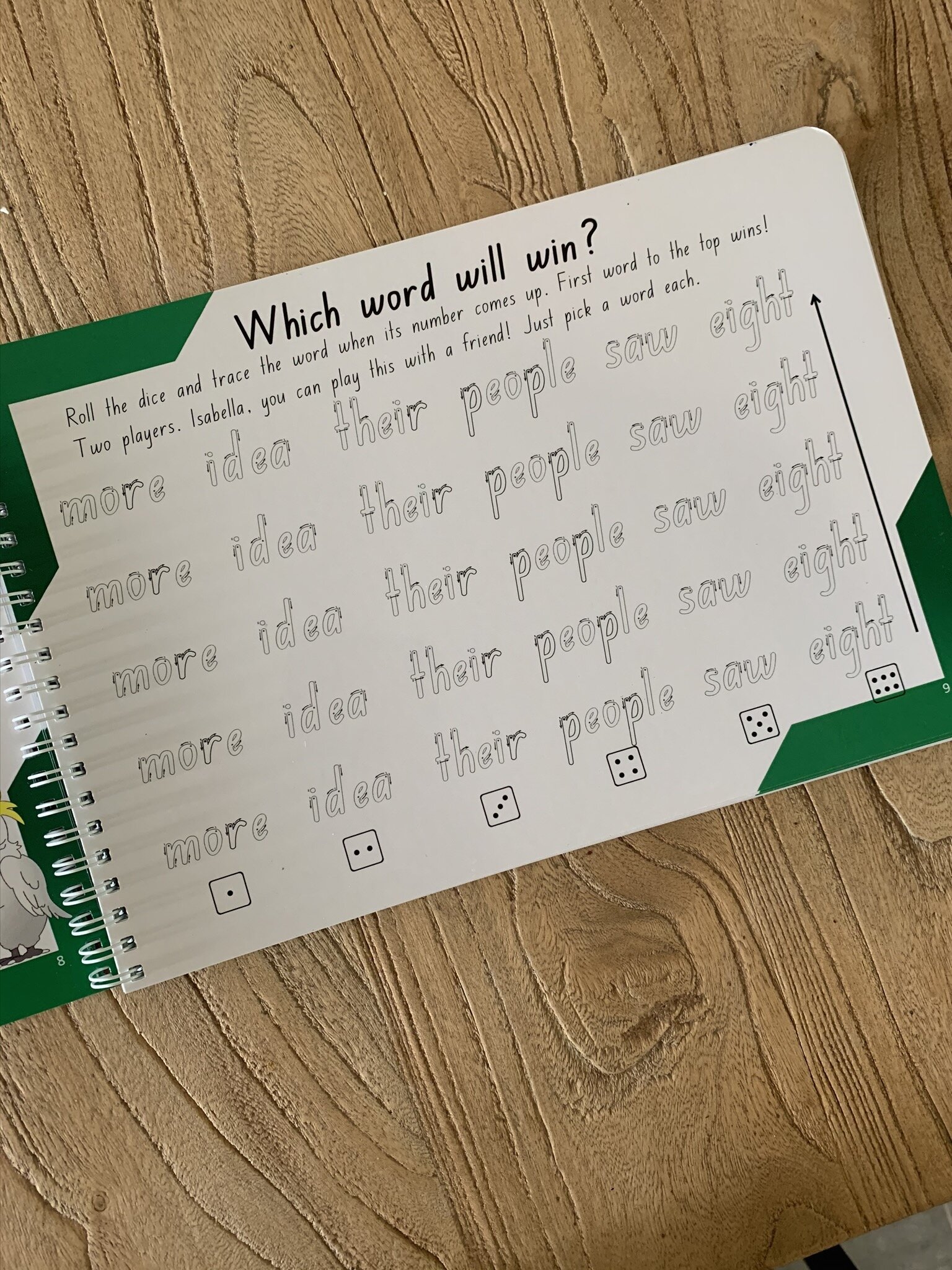
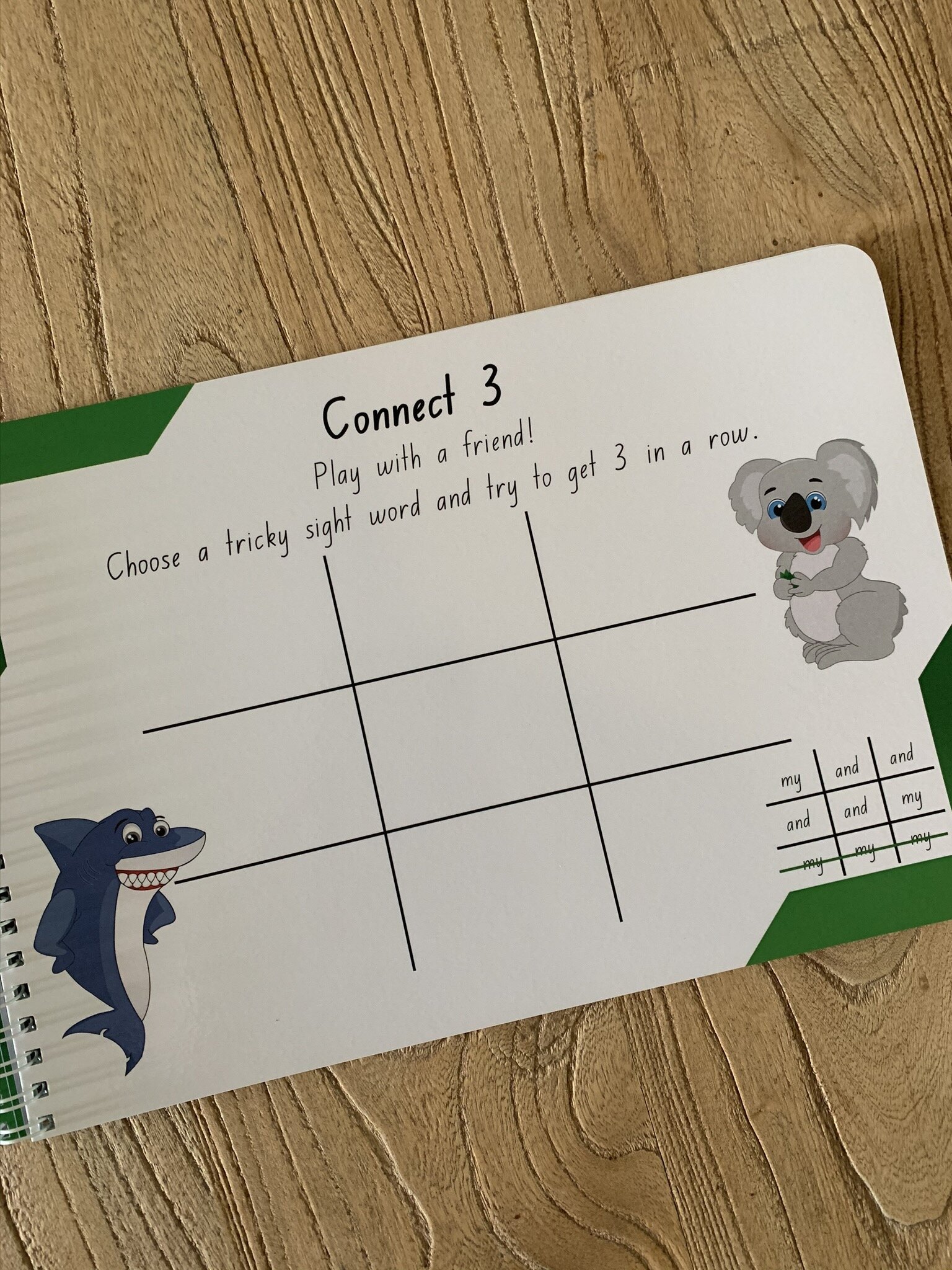
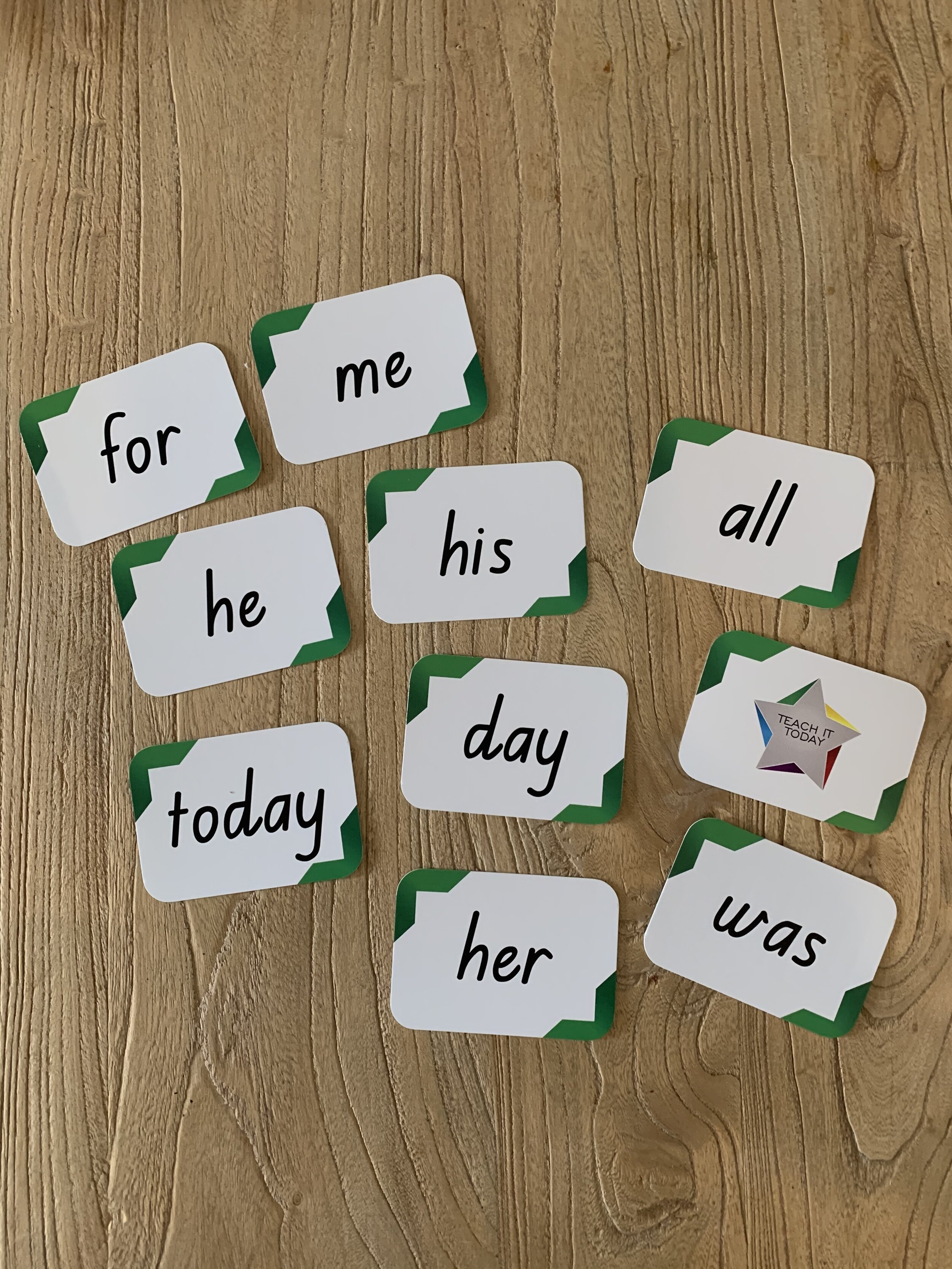
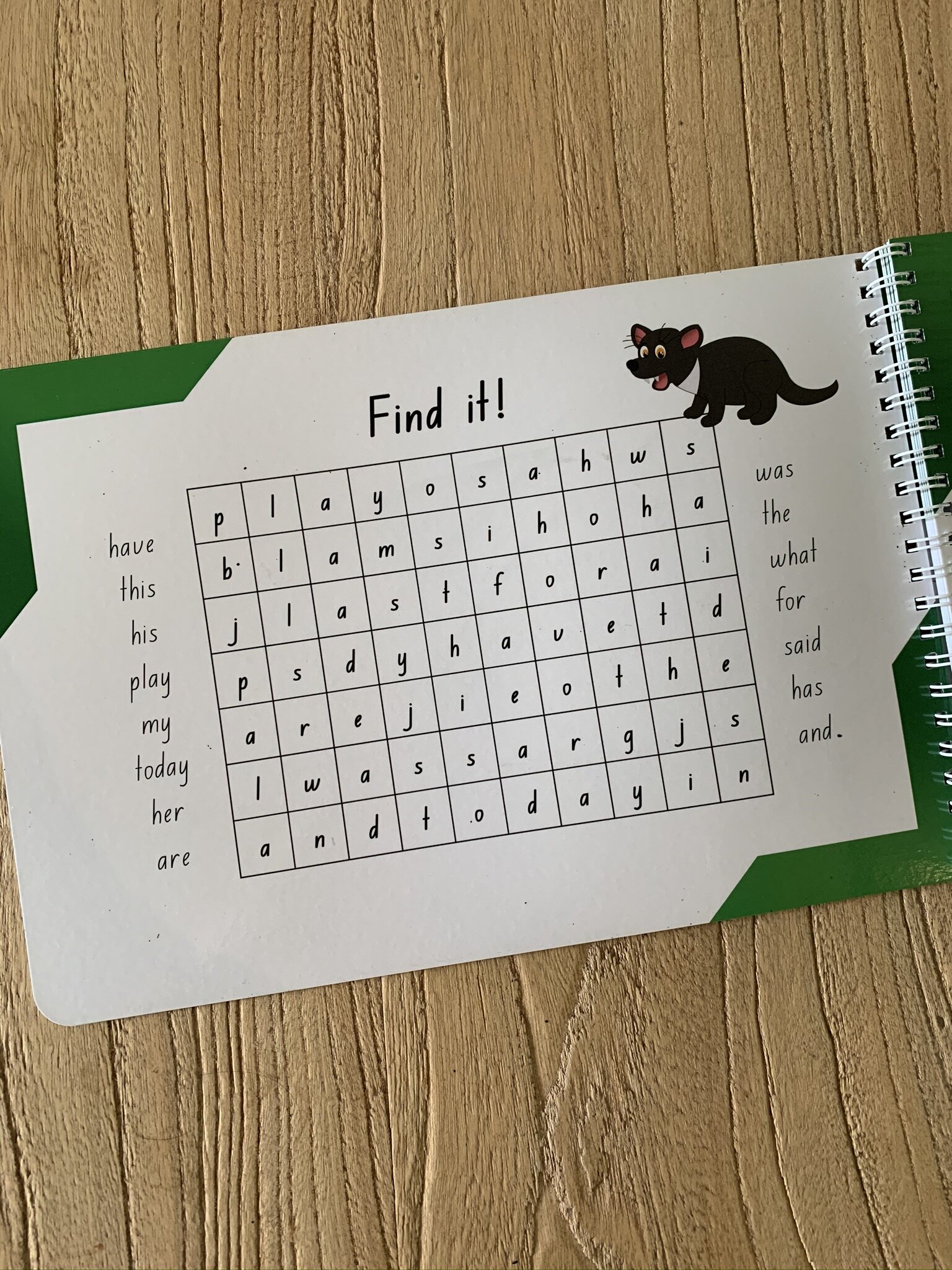
Which sight word will win?
Sight word bingo
Sight word snakes and ladders
Sight word noughts and crosses also known as tic-tac-toe
Sight word find-a-word
All of these games with sight words are in our sight word book, which comes with a a set of flash cards, dice and marker.
Flash cards
You may even like to work through the traditional Look, Cover, Write and Check or as we like to call it Think, Cover Write check using flash cards.
It’s a very simple activity where you look and think about the word, cover or turn the card over, write the word down, then finally check to see how you went. If you wrote or spelt the word correctly then you can place it in a separate pile. If not, have another go!
Another fun activity using the sight word flash cards is choosing 1-3 words to focus on, then highlighting them in a newspaper or magazine.
If you have multiple sets of flash cards you can play games such as:
sight word ‘go Fish’
sight word memory
You may even like to incorporate some hands on sensory activities whilst learning sight words, using our flash cards…
Activities for sight words, such as:
making sight words out of plasticine or play dough. I prefer plasticine over play dough as it’s much firmer and more difficult to manipulate therefore it’s better at strengthening the muscles in the hand. It also doesn’t dry out as quickly as play dough.
using wooden letters to make your sight words (the wooden letters in the pictures only cost a few dollars purchased from Kmart in Sydney) If you need multiple letters for some sight words, have you child push the wooden letter into play dough or plasticine to make the word
sight word cup game - you will need some cups or mugs for this game. Attach the flash cards cups using blutak (1 flash card per cup). Hide a token such as a button under a few cups (not every cup). Ask your little learner to read a sight word attached to a cup. If they read it correctly they may lift the cup to reveal a token. Be sure to give them multiple opportunities to read the word correctly. The person with the most tokens at the end wins!
Teach It Today also have a free app called Spell It to help your little learner learn their sight words!
It’s available on the app store (ipad only). Although there is an option to login, you can play the games and create lists without entering any contact details. The app is ad free with NO in app purchases.
It was designed for classroom use, but can easily be used at home.
Like we say, practise makes progress! Thanks for reading.
